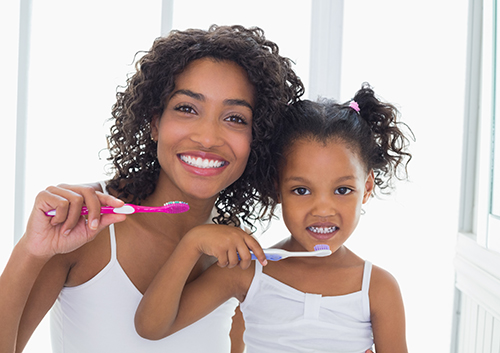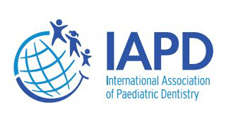Finding the Right Dental Products for Your Child
September 10th, 2025

Dr. Dinah Abioro and our team know how overwhelming it can be to pick the right dental products for your children. When you visit the dental aisle at the grocery store, you see too many options to choose from. We want to help you make an informed decision based on your son or daughter’s needs.
First, you should consider your child’s age and where he or she is in terms of development. Most kids are unable to floss properly until around 12 years of age because of the necessary dexterity. If your youngster is under 12 years old, make sure to assist with flossing every night.
Another option is to use flossers for children. This will make the exercise a bit easier for your little one, because flossers have different-sized handles to fit all ages of hands.
When you’re looking for a child’s toothbrush, the head should be a little bigger than the top portion of your son or daughter’s thumb. If a toothbrush is too big, it won’t be able to reach small areas in the mouth properly. Battery-powered toothbrushes are also recommended because they improve overall brushing quality for both adults and children.
If your child is too young to spit, he or she should use toothpaste without fluoride. Small children tend to swallow toothpaste, even when they don’t intend to. Try looking for a toothpaste that has xylitol listed as the first ingredient. This is a natural sweetener that is beneficial to teeth.
You should also try to identify a flavor that appeals to your child. Same as adults, children like to brush more if they enjoy the flavor that lingers in their mouth after brushing.
It’s smart to look at the ingredients in a toothpaste for the benefits your child needs. Some toothpastes contain sodium fluoride, which fights effectively against cavities. If your child has a sweet tooth, or has already had a cavity, we recommend buying a toothpaste with this ingredient.
Stannous fluoride is another popular ingredient that discourages cavities and includes anti-bacterial properties. You should also watch for the ingredient triclosan, which also suppresses bacteria. These ingredients are both recommend for children who have a high risk for cavities.
Anti-sensitivity toothpaste should also be easy to find in the dental aisle of the store. It contains potassium nitrate to help with sore gums and teeth.
If you’re still unsure which dental products your child should be using, contact our Bowie office. Once we have general information about your child and his or her dental health, we can guide you in the right direction.
When it comes to picking the right toothbrush, toothpaste, floss, and mouthwash for your child, Dental Land Pediatrics is always here to help.








